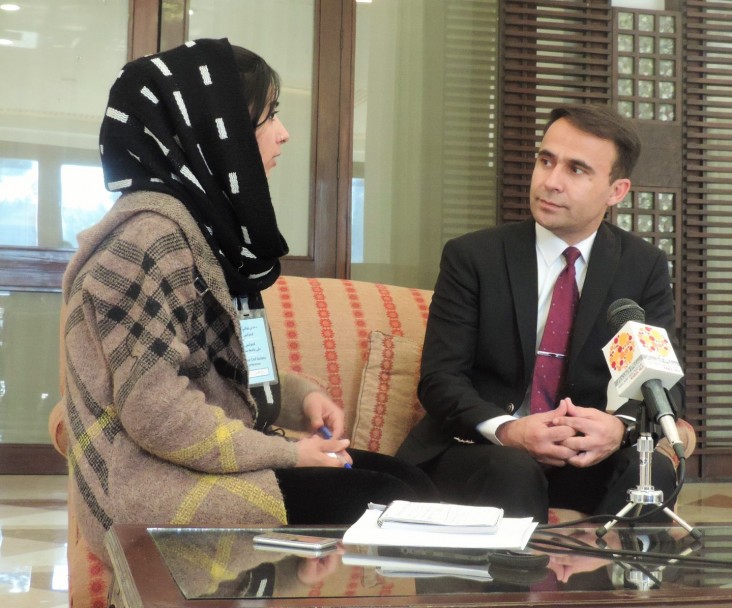Speeches Shim

Afghanistan’s parliamentary elections in October 2018 saw active involvement of civil society organizations (CSOs) calling for transparency and accountability in what turned out to be a complex and contentious process. Critical to the success of their efforts was the role of the media. Weekly radio program Negah-e-Naw played a significant part in engaging the public to raise issues and concerns and reaching national audiences.
The program is supported by Internews as part of the USAID funded Afghan Civic Engagement Program (ACEP), co-implemented with Counterpart International and is broadcast by the Salam Watandar Radio Network across all 34 provinces.
Speaking about the program’s importance in the elections, Naim Ayoubzada, Director of Transparent Election Watch of Afghanistan (TEFA) said, “Negah-e-Naw played a key role in disseminating the findings from investigations carried out by elections watch organizations into various aspects of the electoral process, including the actions of the governing bodies, the voting process, and results. I consider it to be a very effective bridge between the electoral commissions, observer institutions and the people of Afghanistan.”
Since the elections, the program has taken up topics such as looking into how candidates conducted their campaigns, the legitimacy of the elections given the low turnout, and the release of the elections results. It has served as a platform for 164 CSO representatives to communicate and engage the public throughout the electoral process.
Electoral bodies meanwhile use the program to build their credibility and provide information on important developments. Deputy Spokesperson of the Independent Elections Commission (IEC) Shaima Alamsorush said, “The Negah-e-Naw team from Salam Watandar are in constant contact with us each week, with demands for answers that the public needs to hear. They keep us alert by ensuring that we strive to find solutions to those concerns.”
As Afghanistan prepares for presidential elections, scheduled in September 2019, the role of civil society and media continues to be essential, especially amid limited trust and participation among the public. Just as the media and CSOs were at the forefront of monitoring the elections in 2018, their involvement will be crucial in the upcoming presidential elections.
“Elections are a national process that cannot be effective without public awareness,” believes TEFA’s Naim Ayoubzada, adding that “such radio programs help promote citizen engagement, and investigative reporting helps the Commissioners and decisionmakers to know where the gaps are. Apart from being a civil society platform, it plays the crucial role of informing citizens so that they can make educated political choices.”

Comment
Make a general inquiry or suggest an improvement.